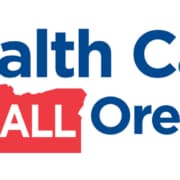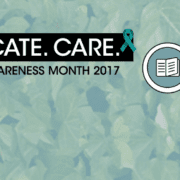Responding to #MeToo and More
In a time when our newsfeeds are overflowing with disclosures from sexual assault survivors, articles about the social and political consequences for high profile perpetrators, and endless debates over what accountability should look and sound like, it is natural to feel overwhelmed.
We are swimming, sometimes drowning, in questions. “How do we stop sexual assault?” “How come it has taken this long for people in power to be called out?” “How do I heal?” “What do we do with offenders?” “How do I escape, when it feels like sexual violence is everywhere?” “Who can I trust?”
As an agency, SARC wants to directly address all that is occurring in Hollywood, state and federal politics, and in our own communities. But while this storm of media attention has the potential to be a pivotal moment in changing how our culture views and addresses sexual violence, SARC’s response has remained the same:
If you have experienced sexual violence and are looking for some kind of support, SARC is here for you.
Whether something happened three hours ago or thirty years ago, SARC is here for you.
Whether you know exactly what you want or you have no idea where to begin, SARC is here for you.
For anybody with any gender identity, race, documentation status, sexual orientation, occupation, spirituality, and any other identities that make up a human being, SARC is here for you.
Whether you want to tell us what happened or you want to keep that to yourself, SARC is here for you.
For people struggling with how to support a friend or family member who has experienced sexual violence, SARC is here for you.
To people who may be grappling with the multitudes of denials that have come from these disclosures, and the small number of admissions, we want to recognize how painful and messy it is to hear perpetrators try to lie or apologize their way out of accountability. Hearing offenders admit their wrongdoing can have value and be healing for some people, and SARC respects the power that can give survivors. We would be ignorant to not also recognize critically that it is only under the most extreme social and political pressure that these few public admissions are coming to light – when entire careers, financial investments, and crucial elections are on the line.
The reality of how commonplace acts of sexual violence are is as true today as it was 40 years ago when SARC first started, as it was 400 years ago. The consequences these high profile perpetrators are facing represent a step forward in cultural accountability, but this momentum needs to carry us further. As a culture, we can’t only pay attention to an offender after more than 50, more than 70, more than 100 survivors come forward. We can’t come out against sexual assault but not call out “locker room talk” at our jobs, schools, and in our personal lives.
To those in positions of power, especially white men, who pledge to be more accountable in their personal and professional lives, and who recognize how they have contributed to and enabled sexual violence, we say: thank you, more please. Step up through ongoing actions, beyond words alone. Take the pressure of voicing these issues off of those who experience sexual violence most often, like women, trans women, women of color, LGBTQ people, women in poverty, and more. For too long, the burden of combating sexual violence has fallen to those who have experienced it firsthand. Help us change that.
SARC is, as always, in awe of the resilience and strength of the survivors out there. The people we work with, and the people we don’t. The people who are sharing their stories, and those who are not. Everyday may not be perfect, you may not always feel the magnitude of your strength, and you may not always feel okay. Through all of that, you are not alone. Everyday, especially the tough days, SARC is here for you.
To get in touch with SARC’s services, seek support, or ask questions, contact SARC’s 24-hour Support Line: 503-640-5311.









 our country’s ability to address issues around sexual assault, intimate partner violence, domestic violence, and stalking. Thanks to continued bipartisan reauthorizations, countless numbers of services and resources for survivors across the country are made possible through VAWA. Eliminating or even reducing VAWA’s federal funds would directly reduce resources for and the safety of survivors.
our country’s ability to address issues around sexual assault, intimate partner violence, domestic violence, and stalking. Thanks to continued bipartisan reauthorizations, countless numbers of services and resources for survivors across the country are made possible through VAWA. Eliminating or even reducing VAWA’s federal funds would directly reduce resources for and the safety of survivors.
